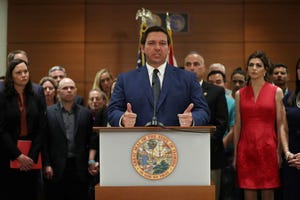No end in sight to government shutdown
Legislative Watch: Border wall or bust; USJTA negotiations; Japan-EU trade agreement moves forward; growing locally, selling globally.
There seems to be no end in sight to the government shutdown after limited discussions between the White House and Congress this week. Democrats will gain leverage with their takeover of the House of Representatives on Jan. 3 if there is not an agreement by then. President Trump insists there needs to be money for the border wall or he is willing to continue the government shutdown. Approximately 800,000 federal employees will be effected by the shutdown.
Certain functions of government will continue throughout the shutdown. At the USDA these include:
Meat, poultry and processed egg inspection.
Grain inspection, weighing, grading and IT support services funded by user fees.
Inspections for import and export activities to prevent the introduction and dissemination of pests into and out of the United States.
Forest Service law enforcement, emergency and natural disaster response.
Supplemental Nutrition Assistance Program households will receive benefits for January.
School lunch, school breakfast, child and adult care feeding, summer food service and special milk will continue into February.
USDA’s Market News.
Some farm payments (including direct payments, market assistance loans, market facilitation payments and disaster assistance programs) will continue for the first week of the shutdown.
This could potentially be the longest government shutdown since the 16-day shutdown in 2013.
US-Japan trade negotiating objectives
The U.S. Trade Representative has released its trade negotiating objectives, “U.S.-Japan Trade Agreement Negotiations,” for when the United States and Japan begin negotiating a trade agreement next year.
The objectives for agriculture are:
Secure comprehensive market access for U.S. agricultural goods in Japan by reducing or eliminating tariffs.
Provide reasonable adjustment periods for U.S. import sensitive agricultural products, engaging in close consultation with Congress on such products before initiating tariff reduction negotiations.
Eliminate practices that unfairly decrease U.S. market access opportunities or distort agricultural markets to the detriment of the United States, including: non-tariff barriers that discriminate against U.S. agricultural goods; unfair or trade distorting activities of state trading enterprises or state-owned enterprises and other administrative mechanisms, with emphasis on requiring transparency in the operation of state trading enterprises and other such mechanisms in order to end cross subsidization, price discrimination and price undercutting; and restrictive rules in the administration of tariff rate quotas.
Promote greater regulatory compatibility to reduce burdens associated with unnecessary differences in regulations and standards, including through regulatory cooperation when appropriate.
Establish specific commitments for trade in products developed through agricultural biotechnologies, including on transparency and management of low-level presence issues, and a mechanism for exchange of information and enhanced cooperation on agricultural biotechnologies.
With the official release of the report, negotiations between the United States and Japan could begin on Jan. 20.
Japan-EU trade agreement moves forward
Japan’s parliament has approved legislation to ratify the Japan-EU Economic Partnership Agreement and the European Council has approved the agreement. The agreement will go into effect on Feb. 1.
Growing locally, selling globally
The theme for USDA’s 2019 Agricultural Outlook Forum is “Growing Locally, Selling Globally.” Speakers will include Secretary of Agriculture Sonny Perdue, Deputy Secretary Steve Censky, USDA Chief Economist Robert Johansson, Nebraska Gov. Pete Ricketts and Barbara Glenn of the National Association of State Departments of Agriculture.
USDA’s 95th Forum will be held Feb. 21-22 at the Crystal Gateway Marriott Hotel in Arlington, Va.
About the Author(s)
You May Also Like



